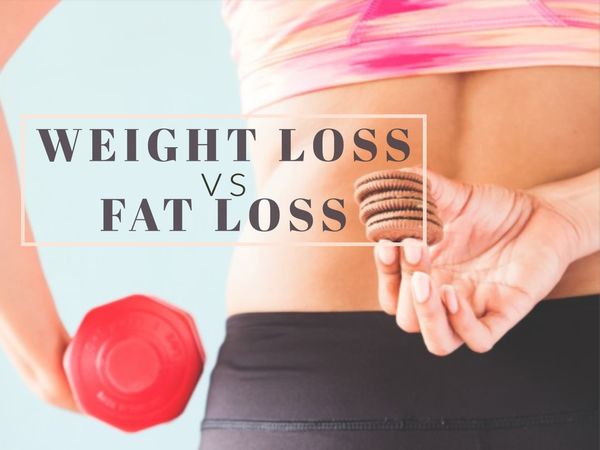Just In
- 3 hrs ago

- 6 hrs ago

- 7 hrs ago

- 8 hrs ago

Don't Miss
- News
 Who Was Max Azzarello, The US 'Conspiracy Theorist' Who Set Himself On Fire Outside Donald Trump's Trial?
Who Was Max Azzarello, The US 'Conspiracy Theorist' Who Set Himself On Fire Outside Donald Trump's Trial? - Education
 Zerodha-backed firm offers jobs to UPSC aspirants who couldn't crack the exam
Zerodha-backed firm offers jobs to UPSC aspirants who couldn't crack the exam - Movies
 Do Aur Do Pyaar Box Office Collection Day 2 Prediction: Vidya-Pratik's Rom-Com To Cross 1 Cr On Saturday
Do Aur Do Pyaar Box Office Collection Day 2 Prediction: Vidya-Pratik's Rom-Com To Cross 1 Cr On Saturday - Sports
 IPL 2024: Gautam Gambhir Always Knew Sunil Narine Would Become A T20 Legend
IPL 2024: Gautam Gambhir Always Knew Sunil Narine Would Become A T20 Legend - Finance
 Elon Musk Postpones India Trip, Tesla's Indian Market Entry Delayed
Elon Musk Postpones India Trip, Tesla's Indian Market Entry Delayed - Technology
 Best Noise-Cancelling Earbuds Under Rs 5,000: CMF Buds Pro, Redmi Buds 5, Realme Buds Air 5, and More
Best Noise-Cancelling Earbuds Under Rs 5,000: CMF Buds Pro, Redmi Buds 5, Realme Buds Air 5, and More - Automobiles
 Tesla CEO Elon Musk's Much-Awaited Visit to India Deferred, Leaving Questions Unanswered
Tesla CEO Elon Musk's Much-Awaited Visit to India Deferred, Leaving Questions Unanswered - Travel
 Journey From Delhi To Ooty: Top Transport Options And Attractions
Journey From Delhi To Ooty: Top Transport Options And Attractions
Weight Loss Vs Fat Loss: Which is Healthy For You?
If you think losing weight and losing fat means the same, you need to know that there is a major difference between the two. Just because there is a lack of understanding about the difference between the two, many people are unable to achieve their desired goals when it comes to getting the perfect physique according to them.
Your weight comprises of the mass of your bones, muscles, organs as well as the water content your body. So weight loss includes losing the weight of all these components. Fat loss, on the other hand, means shedding the fat stored in your body [1] .

Facts About Body Weight & Weight Loss
Losing weight doesn't necessarily make a person fit or healthy. The health of a person depends on the fat content of his or her body. The body weight is majorly comprised of the mass of water our body stores, and consequently, carbohydrates have the ability to bind with our body's water content and cause weight gain. Hence, consuming lower levels of carbs can aid in weight loss [2] .
At times weight loss can lead to losing muscle mass which in turn lowers your body's metabolic rate and trigger weight gain instead [3] . It is very crucial for overweight people to work out regularly to shed weight and get in shape. They should focus more on fat loss and do the right exercises which shouldn't affect them adversely.
What's The Right Way To Lose Fat?
The key to achieving your goal effectively is by including cardio exercises along with strength exercises in your workout regime [4] .
If you do cardio exercises alone for weight loss, it will result in muscle loss, and ends up affecting the body adversely by depleting the body's strength and fitness level. It will also lower your body's metabolic rate and reduce your muscle mass.
On the other hand, if you want to lose the unwanted fats from your body, you need to include weight training along with cardio and proper sleep, which can help in increasing your body's strength [5] . In the current article, we will look at the healthy means which can aid in fat loss.
Shedding Weight The Right Way
- Don't lose weight due to dehydration: Your weight reduces if you remain dehydrated, but this is not really weight loss; the fats you should be burning still remains in your body. Losing weight due to dehydration is not even a permanent way to lose weight. The muscle in your body will shrivel due to the lack of moisture [6] .
- Burn fats by gaining muscle: The best way to lose fats from your body is through strength training. Strength training helps you gain muscle and aid in shedding weight at the same time. Doing just cardio exercises is not enough, if you stop doing cardio you will regain the bulk you lost.
- Get healthy by losing fats: The best way to get rid of the fats in your body is by weight lifting. To stay safe and achieve your goal of losing weight and building muscles effectively you should get a trainer to guide you in doing the strength training the right way without getting injured [7] .
- The right diet is the key to muscle mass: A proper diet consisting of the right amount of calories and nutrients is really crucial for you when you are trying to prevent muscle loss. Eat according to the activity level as well as your body's size [8] . Include all sorts of fruits and veggies, legumes, whole grains, tubers, dairy & meat in your diet.
Being Thin vs. Being Healthy
Chandra Gopalan, an established marathon and ultra-marathon runner and fitness experts adds her view on the difference between being thin and being healthy.
- Looking thin on the outside does not mean you are not storing fat on the inside - We have seen a lot of members who look thin but whose fat percentage is quite high. These women have the same health risk as a fat person.
- Being thin is not a ticket to eat whatever you want and not exercise - Thin people can get heart disease and diabetes just like the rest of us if they don't treat their bodies right.
- Being overweight does not necessarily mean you are not fit - Being fit means having endurance and strength. It means having the fitness to do enduring physical activity and enjoying it. Being overweight could mean more muscle mass and not always excess fat in the body.
- Being too skinny can be just as dangerous as being too heavy - Being too thin is associated with risks like low muscle mass, low immunity, anaemia, osteoporosis, hair loss, and irregular periods.
On A Final Note...
Attempting to lose your weight instead of losing fat can have various negative effects on your body. Crash dieting and improper diet will not help you achieve a healthy body, but instead, decreases your physical performance, strength and fitness and paves way for premature ageing as well as decrease levels of immunity [9] .
By incorporating proper nutrition and exercises, one can promote healthy fat loss which can aid in improving fitness, strength and physical performance [10] . It also helps in improving your immunity and thereby preventing the onset of various diseases.
- [1] Allison, D. B., Zannolli, R., Faith, M. S., Heo, M., Pietrobelli, A., Vanltallie, T. B., ... & Heymsfield, S. B. (1999). Weight loss increases and fat loss decreases all-cause mortality rate: results from two independent cohort studies. International journal of obesity, 23(6), 603.
- [2] Turcato, E., Zamboni, M., De Pergola, G., Armellini, F., Zivelonghi, A., Bergamo‐Andreis, I. A., ... & Bosello, O. (1997). Interrelationships between weight loss, body fat distribution and sex hormones in pre‐and postmenopausal obese women. Journal of internal medicine, 241(5), 363-372.
- [3] Hjorth, M. F., Blædel, T., Bendtsen, L. Q., Lorenzen, J. K., Holm, J. B., Kiilerich, P., ... & Astrup, A. (2019). Prevotella-to-Bacteroides ratio predicts body weight and fat loss success on 24-week diets varying in macronutrient composition and dietary fiber: Results from a post-hoc analysis. International Journal of Obesity, 43(1), 149.
- [4] McDowell, K., Petrie, M. C., Raihan, N. A., & Logue, J. (2018). Effects of intentional weight loss in patients with obesity and heart failure: a systematic review. Obesity reviews, 19(9), 1189-1204.
- [5] Quist, J. S., Rosenkilde, M., Petersen, M. B., Gram, A. S., Sjödin, A., & Stallknecht, B. (2018). Effects of active commuting and leisure-time exercise on fat loss in women and men with overweight and obesity: a randomized controlled trial. International Journal of Obesity, 42(3), 469.
- [6] Robert, C. (2019). Weight Loss Eating Tips 2 Fat Loss Diet Princples. pdf.
- [7] Kays, J. K., Shahda, S., Stanley, M., Bell, T. M., O'Neill, B. H., Kohli, M. D., ... & Zimmers, T. A. (2018). Three cachexia phenotypes and the impact of fat‐only loss on survival in FOLFIRINOX therapy for pancreatic cancer. Journal of cachexia, sarcopenia and muscle, 9(4), 673-684.
- [8] McDowell, K., Petrie, M. C., Raihan, N. A., & Logue, J. (2018). Effects of intentional weight loss in patients with obesity and heart failure: a systematic review. Obesity reviews, 19(9), 1189-1204.
- [9] Lee, P. C., Ganguly, S., & Goh, S. Y. (2018). Weight loss associated with sodium‐glucose cotransporter‐2 inhibition: a review of evidence and underlying mechanisms. Obesity reviews, 19(12), 1630-1641.
- [10] Katan, M. B., Berns, M. A., Glatz, J. F., Knuiman, J. T., Nobels, A., & De Vries, J. H. (1988). Congruence of individual responsiveness to dietary cholesterol and to saturated fat in humans. Journal of lipid research, 29(7), 883-892.

-
 wellness5 Reasons Why You Might Want To Think Twice Before Embracing A Juice Cleanse
wellness5 Reasons Why You Might Want To Think Twice Before Embracing A Juice Cleanse -
 healthLazy But Effective Weight Loss: 5 Winter Hacks To Shed Fat Without Breaking A Sweat
healthLazy But Effective Weight Loss: 5 Winter Hacks To Shed Fat Without Breaking A Sweat -
 healthDo You Have Hidden Belly Fat? How To Know?
healthDo You Have Hidden Belly Fat? How To Know? -
 healthCricket World Cup: Shubman Gill’s Favourite Food Combo; 3 Ways To Make It Weight Loss-Friendly
healthCricket World Cup: Shubman Gill’s Favourite Food Combo; 3 Ways To Make It Weight Loss-Friendly -
 healthHerbs That Reduce Burn Belly Fat In Two Weeks!
healthHerbs That Reduce Burn Belly Fat In Two Weeks! -
 healthWeight Loss: 5 Ways Psyllium Husk Can Boost Fat Loss; Side Effects
healthWeight Loss: 5 Ways Psyllium Husk Can Boost Fat Loss; Side Effects -
 wellness5 Benefits Of Eating Okra/Lady Finger On A Weight Loss Diet
wellness5 Benefits Of Eating Okra/Lady Finger On A Weight Loss Diet -
 healthWeight Loss: How Long Should You Wait After Dinner To Sleep To Promote Fat Burning
healthWeight Loss: How Long Should You Wait After Dinner To Sleep To Promote Fat Burning -
 healthWeight Loss: Can Drinking Warm Water On Empty Stomach Help To Loose Weight?
healthWeight Loss: Can Drinking Warm Water On Empty Stomach Help To Loose Weight? -
 healthWeight Loss Tips: Morning Snacks To Avoid To Lose Weight And Burn Fat Easily
healthWeight Loss Tips: Morning Snacks To Avoid To Lose Weight And Burn Fat Easily -
 healthDo Not Eat These 5 Ultra Processed Foods If You Want To Lose Weight, According to Experts
healthDo Not Eat These 5 Ultra Processed Foods If You Want To Lose Weight, According to Experts -
 healthWeight Loss Diet Plan To Help Lose 5Kgs In A Week
healthWeight Loss Diet Plan To Help Lose 5Kgs In A Week


 Click it and Unblock the Notifications
Click it and Unblock the Notifications



